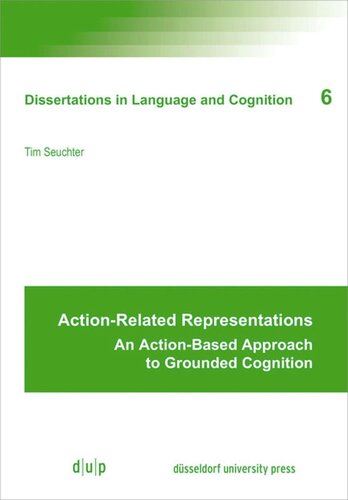

Most ebook files are in PDF format, so you can easily read them using various software such as Foxit Reader or directly on the Google Chrome browser.
Some ebook files are released by publishers in other formats such as .awz, .mobi, .epub, .fb2, etc. You may need to install specific software to read these formats on mobile/PC, such as Calibre.
Please read the tutorial at this link: https://ebookbell.com/faq
We offer FREE conversion to the popular formats you request; however, this may take some time. Therefore, right after payment, please email us, and we will try to provide the service as quickly as possible.
For some exceptional file formats or broken links (if any), please refrain from opening any disputes. Instead, email us first, and we will try to assist within a maximum of 6 hours.
EbookBell Team

4.4
32 reviewsOpen Access
Theories of grounded cognition state that there is a meaningful connection between action and cognition. Although these claims are widely accepted, the nature and structure of this connection is far from clear and is still a matter of controversy. This book argues for a type of cognitive representation that essentially combines cognition and action, and which is foundational for higher-order cognitive capacities. Action-related representation is a mode of representing features of the environment in terms of possible actions. Central to this concept is that even the most basic actions, such as grasping or reaching, are outcomes of representing features of the environment in relation to features and skills of the acting subject. The author discusses the hierarchical development from egocentric, context-specific action-related representations to abstract representations of general actions. Findings from Philosophy, Neuroscience and Ecological Psychology are analysed, and a novel approach to the understanding of Gibson’s Theory of Affordance Perception, a key element of the concept of action-related representation, is introduced.
Overview over action-related cognition accounts
Novel approach to Gibsonian affordances
Action based account of conceptual development